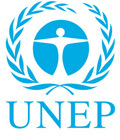UNEP Deputy Executive Director Amina Mohamed addressed a workshop on improving the Institutional Framework for Sustainable Development (IFSD), highlighting UNEP's work in developing the “Guidelines for the Development of National Legislation for Access to Information, Public Participation and Access to Justice in Environmental Matters,” and stressing that UNEP remains committed to providing assistance to countries and major groups.
 25 March 2012: The UN Environment Programme (UNEP) Deputy Executive Director, Amina Mohamed, addressed a workshop on improving the Institutional Framework for Sustainable Development (IFSD), and underscored the need for a new, inclusive and participatory governance system that takes into account “the needs and demands of both current and future generations.”
25 March 2012: The UN Environment Programme (UNEP) Deputy Executive Director, Amina Mohamed, addressed a workshop on improving the Institutional Framework for Sustainable Development (IFSD), and underscored the need for a new, inclusive and participatory governance system that takes into account “the needs and demands of both current and future generations.”
Mohamed was speaking at a workshop organized by UNEP to address the key elements of reform of an IFSD, which was held on 25 March 2012, in New York, US, on the sidelines of the First Round of ‘Informal-Informal’ Negotiations on the Zero Draft of the Outcome Document of the UN Conference on Sustainable Development (UNCSD, or Rio+20).
She drew attention to Principle 10 of the Rio Declaration, that “environmental issues are best handled with participation of all concerned citizens,” and stressed that 20 years after the Rio Earth Summit, only “part of the journey has been made.” She highlighted UNEP’s work in developing the “Guidelines for the Development of National Legislation for Access to Information, Public Participation and Access to Justice in Environmental Matters,” stressing that UNEP remains committed to providing assistance to countries and major groups.
On IFSD, Mohamed noted the need for a wider role for civil society and other stakeholders, as well as for longevity in planning and decision making. She drew attention to the concept of an ombudsperson for future generations, which is supported by UNEP. In closing, she stressed that Rio+20 provides an opportunity to recognize that existing collective agreements need to reflect the markedly different economic, geopolitical, social and environmental situations from the 20th century, stressing that urgent and clear leadership is needed. [UNEP Press Release]